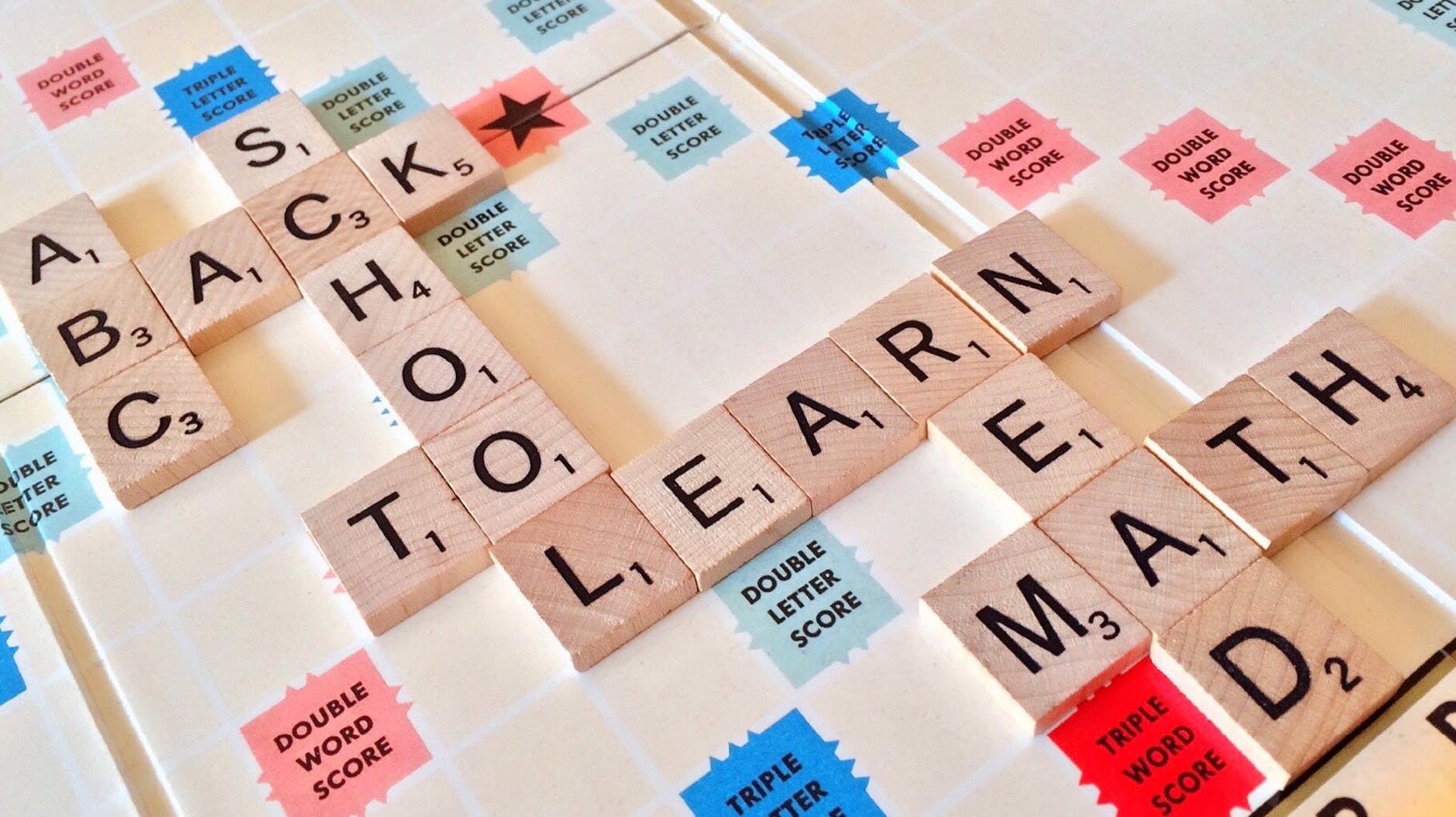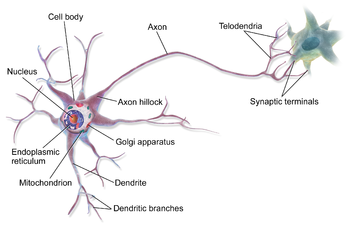Learning by Making Connections
Marley is trying to learn a programming language. He had no previous programming experience. However he believed that he could learn anything if he puts his mind to it. This believe was born out of experience.

Image source
He was born and raised in a small farm town and prior to leaving there, he did not know much about the world. But ever since then he found that he could easily compare with his mates in terms of knowledge and experience.
He enrolled on a python for data science course online on Udemy but he struggles to understand it. This is the first time he is stuck on a subject and could not get past it and it bothers him that his brain may be becoming duller with age.
Actually, intelligence is not fixed. People are supposed to get more intelligent with time. To fully grasp how we learn, we should look at the physiology of the brain. The brain is a mass of fibre made of up to 100 billion neurons. Neurons are special, electrically excitable cells found in the nervous system.

Image source A Multipolar Neuron
The human brain itself is made up of three parts: the stem, cerebellum and the cerebrum. The cerebrum is the part of the brain that has the most to do with learning, retention and recall of stored data. It is also the seat of many higher ordered functions. Different parts of the cerebrum are in charge of speech, touch, sight, reasoning and so on.
.jpg)
Image source
The cerebrum is made up of the left and right hemisphere. The left hemisphere is known to control the right side of the body while the right hemisphere controls the left side.
So How Does Learning Occur?
When a person tries to do something they have not done before like ride a bike, drive a car, go to a location they haven't been before, learn a new language, it is usually difficult at first because the brain resources have to be used to coordinate the different aspects of the activity. But as this process continues, the neurons make connection with each other by passing electrical synapses back and forth between the neurons.
This process continues until the neurons establishes a linear neural pathway. So learning is not really about taking in new information and saving it in the brain. It is more like taking a new information and connecting it to an already existing one. Once this connection is made through repetition, the individual becomes more comfortable with this activity.
Neuroscientists have long believed that learning and memory formation are made by the strengthening and weakening of connections among brain cells.
This explains why it is difficult to learn a subject in which the individual has no background. The brain would experience difficulty making these new connections and learning is thereby made difficult or impossible. Similar things happen when the brain receives information that contradicts previously established data. In this case, it compares the usefulness of the new information and decides to either replace the old information or reject the new one and even forget it.
From the ongoing it becomes clear that the more you use your brain, the more connections your neurons make, the more pathways it creates, the easier it is for you to make future connections and ultimately, the more intelligent you become. But it turns out that not every activity creates this new pathways, only new activities that the brain is not used to. If you keep doing the same things you are comfortable with, your brain will only utilise the old memory it had created in the past and you are no better for it.
To identify activities that will not help your brain become better, take a pen and write out activities which you do easily without any particular exertion. These are activities that your brain has mastered through repetition. You may also write out the activities that you find difficult doing without exertion like learning a new language, learning a new skill, and so on. These are activities that will help improve your brain and make you smarter.
Impediments to Learning
Researchers have found that the brain functions better when you are happy, well hydrated, not stressed and not scared. Exercise has also been found to be good for the brain as it helps to circulate oxygen that helps the brain function optimally.
Therefore, learning is best done when the individual is relaxed and happy, when the person has fed a fairly balanced diet and have normal level of circulation bringing oxygen to the brain. It was also found that a well developed corpus callosum (which is the mass connecting the left and right cerebral hemisphere beneath the cerebral cortex in placental mammals) is indicative of higher than average intelligence.
This part of the brain is developed by activities which make use of both sides of the brain such as playing a musical instrument and both handedness.
So next time you're having difficulty learning a new thing, just know that you are only trying to create new neural connections or network if you will. Know that once the connection is established, you have not only succeeded in learning a new skill, you have also managed to make future learning easier, creating a smarter you!
Thank you for stopping by
Your boy Kels
@churchboy
Sometimes i do not learn what i ought to, because i was too distracted, this made think about your post.
I enjoyed reading everything
Thank you for reading through it. I like learning new things and it bothers me when I don't quickly grasp it. Growing up, my mom used to attribute any lag in academic performance to bad friends and while that was not a good thing, it made me feel that I knew the problem and I could bounce back by letting go of my "bad friends".
But now I can't be said to be influenced by bad friends, I get worried that my mental capacity is dwindling when I try to learn a new skill and fail at the initial stage. I just recently found out that all I need is something I can relate to which can connect to the subject matter.
Thanks for stopping by.
This is why a great teacher focuses on establishing connections for their students, it makes learning more meaningful and much easier.
For bi-lingual learners it is particularly important that they are allowed to work in both languages. There are some schools in our world that force English onto students, but by doing this they completely eliminate the ability for children to make connections with things they already know.
Thanks for sharing your interesting post :)
You're right. Here in Nigeria, the official language of instruction is English but English is not our first language. While the use of English in instructional materials has made our command of English a little more than average, it has also negatively affected our understanding of the things we are taught.
We think in our first language while we read and write in English. This reduces our efficiency and ability to make connections at least at the initial stages.
I'm glad you liked the post enough to comment. I don't usually write this type of post because it is out of my comfort zone. But you know, I'm just trying to make new connections and create new linear pathways.
I'm grateful.
I have always said (without actually testing) that when you try to put your brain into use, it naturally improves it's learning ability. I am a living example of this. Your write up just explained the science behind it. Thanks
Yes. I have always known this at a practical level. For instance it would not make any sense if you try to teach a child that 2+2=4 if he does not know what two is in the first place. The pupil would need to know that there is 1, 2, 3 and so on. Then the pupil would need to know the relationship between these numbers. He has to be very conversant with 2, in other words his neurons need to have formed a linear pathway for 2 in relation to the other numbers, before he would be able to understand the addition. This understanding would be based on the connection that after 1 there is 2. Then there is the issue of plus. Without understanding the + operation, it is not easy to understand 2+2 either.
This explains why people who know three languages can more easily learn a fourth than someone who knows only one.
I appreciate you leaving a comment. Thanks a real lot.
you are welcome
It is not enough to start out to learn, one must be ready to allow themselves go so they go with the learning flow. The teacher can only teach, but it will take a mind willing to accept to get it. Create that connection between you and the subject matter you seek to learn and then, you will get it.
Well said. In fact I find that unless the student has learned some things that prepares him for a new lesson, the teacher labours in vain. Thank you for visiting my blog. I appreciate it and I will check if I'm following you yet and do so if not.